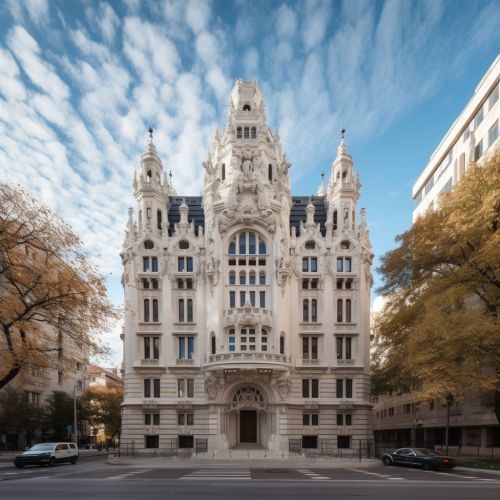University of Leipzig
History
The University of Leipzig, also known as Universität Leipzig, is one of the oldest higher education institutions in Europe. Founded on December 2, 1409, by Frederick I, Elector of Saxony and his brother William II, Margrave of Meissen, the university has a rich history that spans over six centuries read more.


The university initially comprised of four faculties: Arts, Law, Medicine, and Theology. The Faculty of Arts served as a foundation for the other three faculties. Students had to obtain a degree in the Faculty of Arts before proceeding to study in other faculties. This structure was common in medieval universities read more.
Academics
The University of Leipzig offers a wide range of academic disciplines. It is divided into 14 faculties with around 150 institutes. The faculties include Theology, Law, History, Philology, Education, Social Sciences and Philosophy, Economics and Management, Sports Science, Medicine, Veterinary Medicine, Mathematics and Computer Science, Biosciences, Pharmacy, Physics and Earth Sciences, and Chemistry and Mineralogy read more.
The university offers various degree programs including Bachelor's, Master's, State Examination, and Doctorate degrees. The university also offers international degree programs and distance learning courses.
Research
The University of Leipzig is renowned for its research contributions in various fields. The university has several collaborative research centers and is associated with numerous national and international research networks. The university's research profile is characterized by five research fields: Changing Societies in Global Contexts; Intelligent Methods and Materials; Sustainable Systems - from Molecules and Materials to Ecosystems; Life Sciences - from Molecules to Organisms; and Educational Research across the Life Course read more.
Campus
The university's main building, the Paulinum, is a blend of a university church and an assembly hall, reflecting the university's history as a place of both spiritual and scholarly pursuits. The campus also includes the Augusteum, the modern main building of the university, and numerous other buildings spread across the city of Leipzig read more.
Student Life
The University of Leipzig is home to a vibrant student community. The university offers a variety of cultural, sports, and leisure activities. The student council, known as the Studentenrat (StuRa), represents the interests of students at the university. The university also has numerous student clubs and societies catering to a wide range of interests read more.
Notable Alumni
The University of Leipzig has produced numerous notable alumni over the centuries. This includes several Nobel laureates, such as Werner Heisenberg, a key pioneer in quantum mechanics, and Paul L. Modrich, a co-recipient of the Nobel Prize in Chemistry for his work on DNA repair. Other notable alumni include Friedrich Nietzsche, one of the most influential philosophers of the 19th century, and Angela Merkel, the first female Chancellor of Germany read more.
